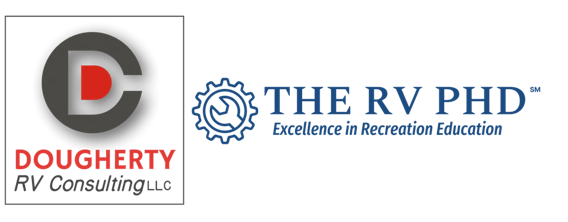In honor of Fire Prevention Week (and month), let’s look at how to keep you and your family safe while cooking in and around your RV and the campsite.
According to the National Fire Protection Association, cooking was the leading cause of reported home fires and injuries and the second leading cause of home fire deaths from 2017 to 2021. And it’s no wonder because of the high temperatures and combustible materials used in and around our cooking appliances and the amount of cooing we do.
The RV PHD Newsletter is a reader-supported publication. To receive new posts and support my work, consider becoming a free or paid subscriber.
Of course, accidents happen no matter how hard we try to prevent them, but if we use common sense and pay attention to what we are doing, we can significantly reduce the risk of a cooking-related RV fire or injury.

- NEVER leave the kitchen or cooking appliances unattended while cooking. Unattended and forgotten food or other items on the stove or oven can lead to disaster.
- Keep combustibles away from cooking appliances. If you keep the habit of never putting combustibles down on the stove, you’ll be less likely to have an accident. The same goes for toasters and toaster ovens.
- Always keep a lid big enough to cover your pan close by. If a fire should start in the pan, immediately cover it and turn the burner off. DO NOT use water to extinguish a stove fire!
- If a fire starts in the oven, turn it off and keep it closed. Open it to use a fire extinguisher only if it’s safe to do so and you’re comfortable with its use.
- Grills and griddles are great, but they must be used safely. Avoid overheating. Grills should ideally be used in a way that prevents flare-ups and fires from spreading to the RV, awning, tents, or other items. If a flareup- happens, close the lid and turn off the grill or griddle.
- Every RV must have an A-10 B:C: fire extinguisher within 24 inches of the main door to the RV. However, additional extinguishers are a good idea! Have one handy in an outside compartment or kitchen in case it’s needed and another near the sleeping area, toy hauler garage, or second door. Remember, fire extinguishers in RVs are a life safety device, should be maintained appropriately, and used to aid egress from the vehicle.

- Turn handles on pots and pans inward or toward the back to avoid accidental scalding injuries and spilled grease fires.
- Do not cook if your thought process is impaired.
- If your clothes catch fire, Stop, Drop, and Roll
Some other safety tips are essential to RV fire safety;
- Make sure your fire extinguishers are serviceable and test them regularly
- RV safety detectors are designed to meet the specific NFPA listing for safety detectors installed in RVs. Detectors will expire, so check your detector and its manual for replacement requirements. Always replace it with a listed RV detector.
- Smoke detectors in RVs must be tested weekly while the RV is occupied. Change the battery seasonally or as needed.
- Every RV must now have an RV Carbon Monoxide (CO) detector. Change battery seasonally if battery powered, and test regularly.
- Every RV equipped with propane must have an LP (propane) detector. Often, this is a combination LP/CO detector. Test it weekly while the RV is in use.
- Operate all of your RV’s emergency escape windows/hatches and ensure everyone in the RV knows how to use them.
- Have a meeting place outside the RV in the event of a fire or other emergency.
- Know your location in case you have to call 9-1-1. The campground should have emergency information available for you on check-in.
With some thought and care, your RV travels can be safe and enjoyable!
Travel well!
Here is a sampling of RV-listed safety equipment on Amazon. As an Amazon Associate, I earn from qualifying purchases, and I appreciate your support; however, these can be purchased anywhere RV parts and accessories are sold.
- First Alert FG-250RV Smoke Detector
- First Alert CO250 RV CO Alarm
- Listed RV LP and LP/CO Detectors, hardwired. Please replace yours with the same make/model for proper fit and operation.
- First Alert 1A;10BC RV Fire Extinguisher
The RV PHD Newsletter is a reader-supported publication. To receive new posts and support my work, consider becoming a free or paid subscriber.
